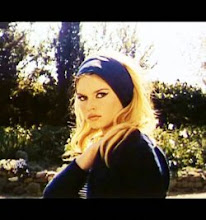
date watched: June 25, 2009
location: Apgujung CGV, Seoul
I had no idea that this film was gonna be so depressing. And since the movie time was 11 PM, I definitely did not go to sleep with happy thoughts. Thought-provoking, yes; optimistic, not so much.
An important point about the director: Zhang Lu is a Chinese-born filmmaker who made many of his films in Korea, since he grew up here. That said, it's no wonder one of the themes of Iri deals with the often xenophobic, and even cruel attitudes Koreans adopt toward foreigners. Iri was the name of a town in the Jeolla province (southern part of South Korea), and now known as "Iksan." Possibly the most famous event that took place in what used to be Iri is the 1977 train explosion, which occurred when dynamite transported aboard caught fire. Jin-seo (after the name of the actress, Yoon Jin-seo) was conceived in the same year, and born the following year. Though not explicitly stated (as with most of the occurences in the film), the incident may have injurious effects on the female protagonist.
Jinsuh is the "babo" (meaning "stupid," or "idiot") of the town, and her ingenuous and kindhearted ways make her a well-liked neighbor, but many men also take advantage of the fact, and she is raped at least two times throughout the course of the film. We can assume that this happens more often than we'd like to imagine. Her boyfriend, Tae-woong (after the actor's real name, Eom Tae-woong) is an elusive character, overly protective of Jin-seo, and simultaneously appearing emotionally restrained and unsympathetic to his surroundings. He is often seen driving alone (he is a taxi driver), but even when he has passengers, they travel alone.
The most crucial element missing between the character is communication. More often than not, Jin-seo seems happier using her rudimentary Chinese skills, and her foreign friends (one from China, another from Pakistan) are more compassionate toward her than her fellow Koreans.
Possibly the most haunting scene in the film is when one of the old men in the nursing home Jin-seo works at commits suicide by hanging. In earlier scenes, he was portrayed as a deranged man, marked by impulsive behavior. In a previous scene, he had sniffed a supine Jin-seo from head to toe, then vanished as quickly as he has appeared. Without a means to effectively interact with his environment, he had tried yelling incomprehensible words, and even resorted to the seemingly animalistic sniffing of another human being; in the end, he was still utterly alone, which may explain his suicidal act.
The strange thing is, Jin-seo, despite all her devastations, remains an insouciant young woman, unwilling even to undergo surgery to prevent further miscarriages and pregnancy complications. When Tae-woong tries to drown her, we cannot help but feel a tinge of sympathy, and even happiness, for Jin-seo, who seems to lead a life full of strife and unwarranted malice. It is thus impossible to despise Tae-woong, though he often appears to be more of a villain than Jin-seo's disparaging neighbors. When Tae-woong explodes his model of Iri, which he had worked on so meticulously, it communicates his deep-rooted hatred for his world, and his desire to obliterate it.
There is no explanation for Jin-seo's reappearance at the end of the film: is she a re-born Jin-seo, or did she simply not die? Or, perhaps, is she an illusion? With the words "Suo Yi laoshi, ni hao, wo de mingzi jiao Jin-seo," she may finally be asserting her presence to the rest of the world, making her voice heard.




















